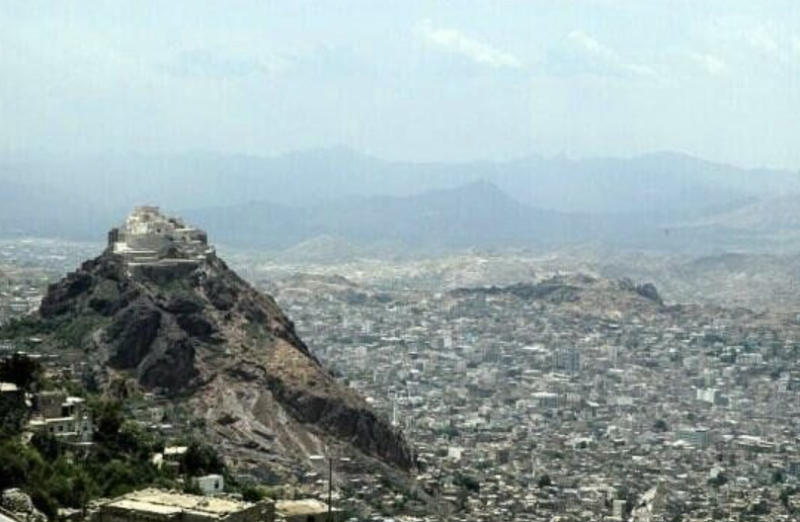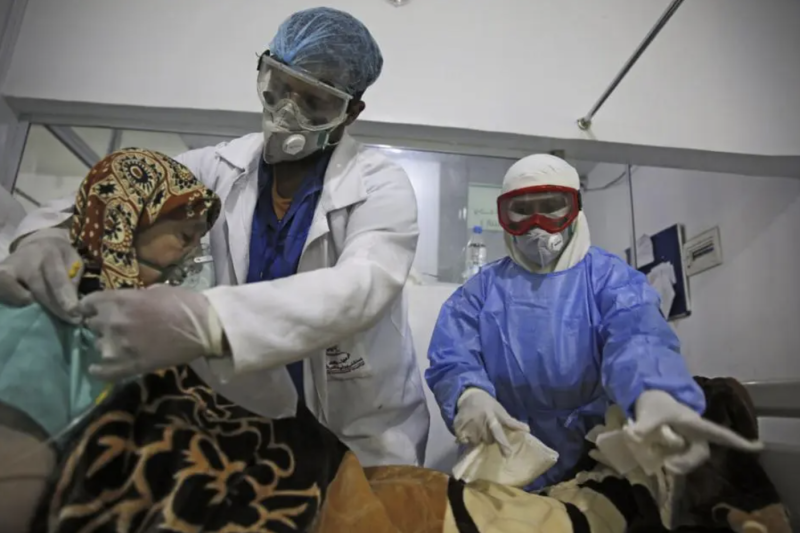On the Front Line of the Saudi War in Yemen: Child Soldiers From Darfur.


The civil war in Darfur robbed Hager Shomo Ahmed of almost any hope. Raiders had stolen his family’s cattle, and a dozen years of bloodshed had left his parents destitute.
Then, around the end of 2016, Saudi Arabia offered a lifeline: The kingdom would pay as much as $10,000 if Hager joined its forces fighting 1,200 miles away in Yemen.
Hager, 14 at the time, could not find Yemen on a map, and his mother was appalled. He had survived one horrific civil war — how could his parents toss him into another? But the family overruled her.
“Families know that the only way their lives will change is if their sons join the war and bring them back money,” Hager said in an interview last week in the capital, Khartoum, a few days after his 16th birthday.
The United Nations has called the war in Yemen the world’s worst humanitarian crisis. An intermittent blockade by the Saudis and their partners in the United Arab Emirates has pushed as many as 12 million people to the brink of starvation, killing some 85,000 children, according to aid groups.
Led by Crown Prince Mohammed bin Salman, the Saudis say they are battling to rescue Yemen from a hostile faction backed by Iran. But to do it, the Saudis have used their vast oil wealth to outsource the war, mainly by hiring what Sudanese soldiers say are tens of thousands of desperate survivors of the conflict in Darfur to fight, many of them children.
At any time for nearly four years as many as 14,000 Sudanese militiamen have been fighting in Yemen in tandem with the local militia aligned with the Saudis, according to several Sudanese fighters who have returned and Sudanese lawmakers who are attempting to track it. Hundreds, at least, have died there.
Almost all the Sudanese fighters appear to come from the battle-scarred and impoverished region of Darfur, where some 300,000 people were killed and 1.2 million displaced during a dozen years of conflict over diminishing arable land and other scarce resources.
Most belong to the paramilitary Rapid Support Forces, a tribal militia previously known as the Janjaweed. They were blamed for the systematic rape of women and girls, indiscriminate killing and other war crimes during Darfur’s conflict, and veterans involved in those horrors are now leading their deployment to Yemen — albeit in a more formal and structured campaign.
Some families are so eager for the money that they bribe militia officers to let their sons go fight. Many are ages 14 to 17. In interviews, five fighters who have returned from Yemen and another about to depart said that children made up at least 20 percent of their units. Two said children were more than 40 percent.
To keep a safe distance from the battle lines, their Saudi or Emirati overseers commanded the Sudanese fighters almost exclusively by remote control, directing them to attack or retreat through radio headsets and GPS systems provided to the Sudanese officers in charge of each unit, the fighters all said.
“The Saudis told us what to do through the telephones and devices,” said Mohamed Suleiman al-Fadil, a 28-year-old member of the Bani Hussein tribe who returned from Yemen at the end of last year. “They never fought with us.”
“The Saudis would give us a phone call and then pull back,” agreed Ahmed, 25, a member of the Awlad Zeid tribe who fought near Hudaydah this year and who did not want his full name published for fear of government retaliation. “They treat the Sudanese like their firewood.”
A few thousand Emiratis are based around the port of Aden. But the rest of the coalition the Saudis and Emiratis have assembled is united mainly by dependence on their financial aid.
The Pakistani military, despite a parliamentary vote blocking its participation, has quietly dispatched 1,000 soldiers to bolster Saudi forces inside the kingdom. Jordan has deployed jets and military advisers. Both governments rely heavily on aid from the Gulf monarchies. (A report by a United Nations panel suggested Eritrea may have sent about 400 troops as well.)
But in Sudan, which has played a far larger role, the Saudi money appears to flow directly to the fighters — or mercenaries, as critics call them. It benefits the economy only indirectly.
“People are desperate. They are fighting in Yemen because they know that in Sudan they don’t have a future,” said Hafiz Ismail Mohamed, a former banker, economic consultant and critic of the government. “We are exporting soldiers to fight like they are a commodity we are exchanging for foreign currency.”
A spokesman for the Saudi-led military coalition said in a statement that it was fighting to restore the internationally recognized government of Yemen and that coalition forces upheld all international humanitarian and human rights laws, including “abstaining from child recruitment.”
“The allegations that there are children among the ranks of the Sudanese forces are fictitious and unfounded,” the spokesman, Turki al-Malki, said in the statement. Saudi officials said their soldiers have also died in Yemen, but declined to disclose how many.
The Sudanese ground troops unquestionably have made it easier for the Saudis and Emiratis to extend the war. The Sudanese have insulated the Saudis and Emiratis from the casualties that might test the patience of families at home.
The Sudanese are sometimes deployed to defend the flanks of the Yemeni militiamen who spearhead attacks. But the Sudanese fighters insist they are also the main barrier against the Saudis’ Yemeni foes, the Houthis.
“Without us, the Houthis would take all of Saudi Arabia, including Mecca,” Mr. Fadil said.
Ambassador Babikir Elsiddig Elamin, a spokesman for Sudan’s Foreign Ministry, declined to comment on troop levels, casualties or paychecks in Yemen. He said that Sudan was fighting “in the interest of regional peace and stability.”
“Other than that,” he added, “we don’t have any national interest in Yemen.”
Sudan’s defense minister threatened last May to withdraw from the conflict, pointedly announcing that Khartoum was “reassessing” participation in light of Sudan’s “stability and interests.” Diplomats called the statement a veiled demand that Saudi Arabia and the United Arab Emirates provide more financial assistance.
They did not, and the Sudanese economy teetered.
Khartoum backed down. The flow of fighters continued.
But President Omar al-Bashir of Sudan has gained valuable allies, easing his international isolation after years as a virtual pariah.
The United States has designated Mr. Bashir’s government a state sponsor of terrorism for more than two decades. The International Criminal Court has issued warrants for his arrest, charging him with directing the Darfur war crimes.
Until recently, the Saudis and Emirates kept their distance, suspicious of Mr. Bashir’s roots in political Islam and relations with Iran and Qatar, both Saudi rivals.
The war in Yemen, however, has enabled Mr. Bashir to win at least diplomatic support from its Gulf leaders, and he has thanked the Saudis and Emiratis for pressing Washington to upgrade relations.
The Saudi payments to the soldiers have become increasingly significant to Sudan, where inflation has hit 70 percent and even in the capital residents line up for bread, fuel and bank withdrawals. At least nine people have been killed this month by security forces.
Darfur has furnished mercenaries to other conflicts as well.
Rebel groups who fought the Janjaweed have turned up fighting in Libya for the anti-Islamist Gen. Khalifa Hifter, according to the findings of a United Nations panel and other reports.
AFP.

Aden - The World Food Programme (WFP) has come under scrutiny after excluding Al-Qahira District, located in the heart of Taiz Governorate, from it…

Aden ــ Human Rights Watch (HRW) has called on all parties involved in the ongoing conflict in Yemen to immediately cease their interference in the…

Sana’a — A newly released report by the Yemeni Network for Rights and Freedoms has documented 5,423 violations committed by the Houthi…